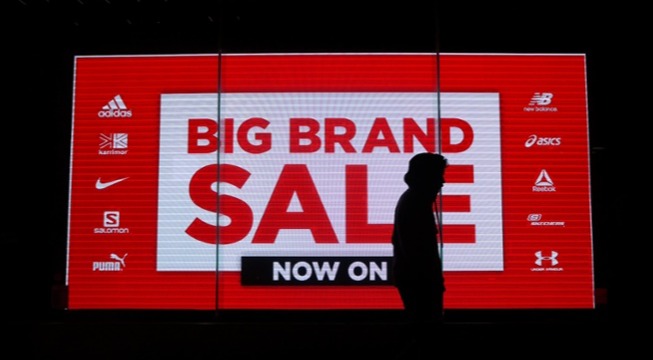 Image courtesy of Jon Cellier.
Image courtesy of Jon Cellier.
“Nothing is enough for the man to whom enough is too little.” – Epicurus
A few weeks ago, Freddy Ehlers, Ecuadorian Minister, sat across the table from me at breakfast. I ate with not only Freddy; but also Bill and Lynne Twist, two of the co-founders of Pachamama Alliance; and Freddy’s personal videographer, Enrique—not bad company.
And unsurprisingly, it didn’t take long for the conversation to morph into something substantial.
An Unobtainable Ideal
According to Freddy, we are living in a world where we are bred to never be content. We’re constantly surrounded by images of products—what’s the newest, biggest, best? Advertisements aren’t just selling products; they’re selling a lifestyle, an unobtainable one.
There’s no way that we could ever keep up with the trends. It’s impossible. But yet, it’s still an expectation for many of us, conscious or otherwise. We condone this pattern of upward comparison by correlating our lives to the fictional ones created by marketing.
Freddy doesn’t believe that consumption leads to happiness; if anything it hinders it. It can distract us from the things that have the capacity to create true happiness.
And Lynne has long subscribed to the idea of sufficiency as well. In her novel, The Soul of Money, Lynne speaks of liberating ourselves from the fear of scarcity. We won’t find fulfillment in life by accumulating things in excess, but from appreciating what we do have and making a difference with that.
What is Enough?
Mid-way through the conversation Freddy turned to me and asked what I thought enough was.
What is enough?
It’s a big question, and I didn’t have a good answer when he asked me. Before that moment I hadn’t dwelled much on it. But that question was a great prerogative to do some soul searching about what we actually need.
There’s a grey area between deprivation and excess. And it’s a haze that’s highly individualized, but on a large scale—especially within American culture—it seems safe to speculate that we’ve paid our dues to the grey area and are sitting very assuredly in an arena of excess.
The average American home contains 300,000 items and has more than doubled in size over the past 50 years. Americans spend $1.2 trillion annually on nonessential goods. And in 2012, we spent more on shoes, jewelry and watches ($100 billion) than on higher education.
Coming to terms with the fact that we have been nurtured into a culture of consumption wasn’t difficult. But finding my way back to that bucolic-seeming grey area was.
Tackling the question of what stays and what goes requires a reassessment of our markers for success and happiness. Why should we continue to govern our satisfaction on a billboard? Instead of evaluating our possessions in terms of status, couldn’t we be gaging them on necessity?
A Few Fundamental Considerations
- What makes you happy? Think beyond the short term. What do you need in your life to be deeply happy?
- What do you need to be good at what you do? We all have passions, talents, hobbies. We don’t have to smother those, but be honest about them.
- What do you need to be comfortable? Don’t think deprivation; think simplification.
Shifting Consciousness
Ultimately, I strive to have a sense of purpose that far exceeds the worth of my possessions. I hope to have a sense of responsibility for my presence on this planet and an understanding of how my choices impact the global community I am a part of.
Shifting collective consciousness requires an engagement of people everywhere in transformational conversations and experiences consistent with the need to create an environmentally sustainable, spiritually fulfilling, socially just human presence on this planet. A shift in consciousness has the ability to galvanize the human family to this end by transforming the systems and structures that separate us and to transform our relationships with ourselves, with one another, and with the natural world.
As Freddy suggests, reevaluating our measure of success and happiness is an important step in the direction of critical understanding and happiness.
